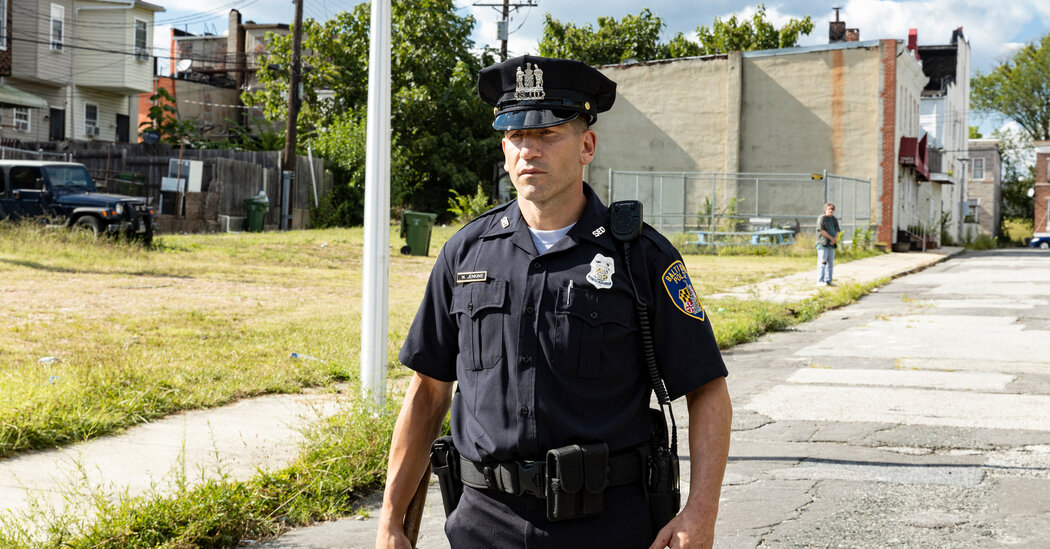
“We Own This City” tends to choose telling over showing, however, especially on the investigation side of the story. As Nicole Steele, a civil-rights-division attorney, Wunmi Mosaku does all she can to create a character who feels her mission deeply and who chafes at her department’s resistance to real change. We glimpse Steele’s motives when she recalls her brother’s being racially profiled by police.
But the character functions mostly to deliver exposition and make, or receive, the show’s arguments. Late in the series, she meets with Brian Grabler (Treat Williams), a retired detective turned critic of the department, who makes a Socratic case that the war on drugs has failed. What, he asks Steele, is driving the police’s actions? “What’s the mission?”
“The drug war,” she says.
“Exactly. And in a war, you need warriors. In a war, you have enemies. In a war, civilians get hurt and nobody does anything. In a war, you count the bodies and then you call them victories.”
It’s a strong editorial, but that does not make for a great show. “We Own This City” is still a very good show, with granular realism, a sly sense of humor and fine acting top to bottom. But its indictments lack the character shading that animated Simon’s adaptations of the housing-policy story “Show Me a Hero” and his own book “The Corner.”
Maybe this is intentional. To return to our unfair comparison, “The Wire” believed that systemic forces mattered more than individual failure or triumph. All those season-ending montages seemed to say: No matter how you feel about the end of this or that particular story, the beat goes on. Along the way, though, you got a lot of rich personal stories to invest in, which is how dramas with a broad social scope manage to succeed as both art and argument.
“We Own This City” instead works as a kind of appendix, an updated extra for Simon and Pelecanos’s existing, well-earned fan base. This series may not change the game. But it is a pointed reminder that after all this time — to quote a series that remains quotable for a reason — the game is the game.




